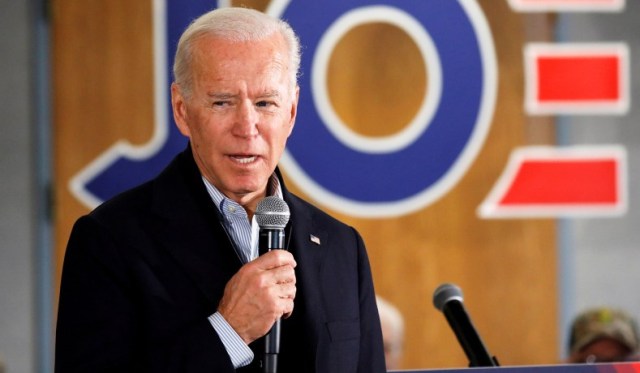
File photo of Former US Vice President Joe Biden
NEW YORK, Jan. 7 (Xinhua) -- Former U.S. Vice President Joe Biden said here Tuesday that President Donald Trump is bringing the United States "dangerously close" to starting a war with Iran.
The Democratic presidential candidate said Trump's authorization of killing Iranian commander Qassem Soleimani last week, an abrupt move made without consultation with the Congress and U.S. allies, has exacerbated tensions in the Middle East.
"If there was an imminent threat that required this extraordinary action, then we are owed an explanation, and the facts to back it up," he said.
Instead of solving a crisis, the assassination has contributed to an "outcome of strategic setbacks, heightened threats, chants of 'Death to America' once more echoing across the Middle East, Iran and its allies vowing revenge," noted Biden.
Stressing that he has "no illusions" about Iran, the 77-year-old veteran politician commented Trump's way of countering Tehran as "self-defeating."
"A president who says he wants to end endless war in the Middle East is bringing us dangerously close to starting a brand-new one," he said.
Biden blasted Trump's decision to withdraw from the Iran nuclear deal, which has made the United States an "international outlier" and sowed the seeds of today's crisis.
The nuclear pact, accomplished in 2015 when Biden was the vice president, was commented by Trump as a "horrible, one-sided deal that should have never, ever been made."
He also asserted that Trump is a "dangerously incompetent" leader in foreign policy whose "constant mistakes and poor decision-making" have left the United States with a "severely limited slate of options for how to move forward, and most of those options are now bad."
Biden, who spent three decades on the Senate Foreign Relations Committee, argued the only way out of the Iran crisis is through diplomacy.
He urged Trump to protect American people and regional interests in face of retaliation threats, and "explain your decision and your strategy to the American people."
"No one wants war. But it's going to take hard work to make sure we don't end up there accidentally," he added.


